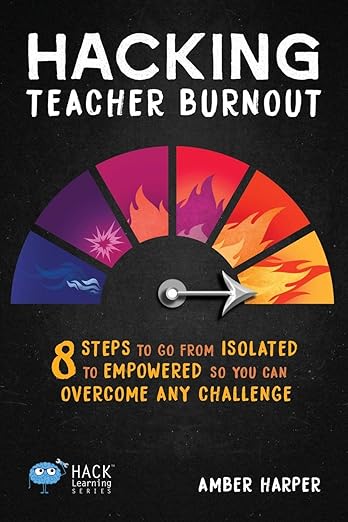5 Proven Strategies to Eliminate Teacher Burnout and Thrive in Your Career
Jun 06, 2025
Burnout has become a silent epidemic in education. Teachers and school leaders—passionate, talented, and dedicated—are leaving the profession in alarming numbers. But burnout isn’t always the end. It can be a turning point. With the right strategies, educators can not only recover from burnout but become stronger, healthier, and more fulfilled than ever.
Here’s how to eliminate burnout and thrive—personally and professionally.
1. Identify Your Burnout Type and Take Action Accordingly
Burnout doesn’t look the same for everyone. Some teachers feel physically and emotionally exhausted. Others feel a deep sense of cynicism or detachment. Still others struggle with a sense of ineffectiveness—like no matter how hard they work, it’s never enough.
Understanding your burnout type is key to overcoming it.
-
If you're exhausted, focus on rest, nutrition, and setting stronger boundaries.
-
If you're disillusioned, reconnect with your “why” through reflective journaling or student impact stories.
-
If you're feeling ineffective, ask for feedback from trusted colleagues or seek professional development in areas that interest you.
The takeaway: You can't heal what you haven't identified. Pinpoint your burnout type and respond with intentional care.
2. Move Through Burnout—Don’t Fight Against It
Most teachers are natural fighters. We push through illness, we work late, we carry the emotional weight of 150 students. But burnout isn’t something you can “push through” without consequence.
Eliminating teacher burnout isn't about working harder. It’s about working differently.
Instead of resisting it, acknowledge it. Sit with it. Learn from it.
Burnout is often a signal that something in your life or work is out of alignment. Maybe you're taking on too much. Maybe you're saying yes when you should say no. Or maybe you're doing things that no longer bring you meaning.
Rather than fighting burnout, try moving through it:
-
Slow down your mornings to ground yourself before the school day begins.
-
Reflect weekly on what drains you and what energizes you.
-
Talk about it with someone who understands—sometimes just naming it lightens the load.
Read more about teacher burnout now
3. Prioritize Growth and Joy Every Day
Burnout thrives in environments of monotony and self-neglect. The antidote? Inject daily doses of joy and growth.
This doesn’t require a sabbatical or a full career change. Small actions compound into powerful shifts:
-
Take a 10-minute walk without your phone.
-
Join (or start) a book club with colleagues.
-
Spend time each day on a creative hobby.
-
Set a goal outside of teaching—train for a 5K, learn to paint, start a side hustle.
When your life expands beyond your classroom, your identity does too. And that space helps buffer against burnout.
4. Redefine Success and Start Thriving
Too many educators measure success by how much they do—how many hours they work, how many students they support, how many initiatives they lead. But thriving educators think differently.
They define success not just by their output, but by their alignment.
-
Am I showing up with integrity?
-
Do I feel joy in my work more often than not?
-
Are my personal and professional lives mutually supportive?
Thriving teachers give themselves permission to let go of perfection and choose presence instead. They learn to say no to things that don’t serve their goals—and yes to the things that matter.
One powerful practice:
-
Write a “Thrive List” of what helps you feel your best (i.e., going home at 4:00 PM, healthy meals, yoga twice a week, monthly dinner with friends). Then build your calendar around these non-negotiables.
5. Prepare for Hardship Before It Hits—and Conquer It When It Does
Burnout often feels like a surprise attack. But thriving educators build emotional and logistical systems that prepare them for tough times.
Proactive resilience is one of the most powerful burnout-prevention tools.
Here’s how to prepare before the storm hits:
-
Build a network of support—mentors, colleagues, friends—who can listen without judgment.
-
Create routines that protect your energy, like shutting down email after 6 PM or taking a tech-free weekend once a month.
-
Identify your stress patterns. What does it look like when you’re overwhelmed? What helps you recover?
And when hardship does come, don’t go it alone. Reach out. Ask for help. Take that sick day. Use your mental health resources. You’re not failing—you’re fighting smart.
Final Word: You Deserve to Thrive
Eliminating teacher burnout isn't about working harder. It’s about working differently. It's about honoring your humanity, embracing your needs, and designing a life and career that bring you fulfillment—not just survival.
You became a teacher because you wanted to make a difference. But to do that, you have to take care of the person doing the work.
So take the step. Choose rest. Choose joy. Choose yourself.
Because thriving teachers change lives—not just their students’, but their own.






